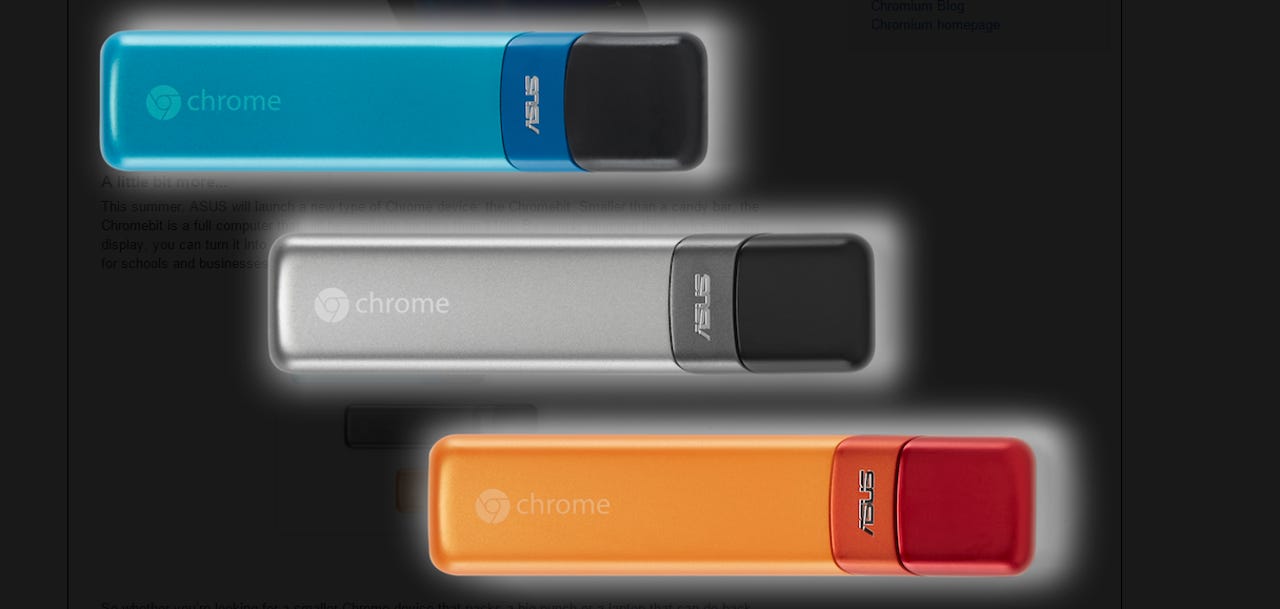Google pushes the computer as an appliance theme with Chromebit, Chromebooks


Google's move to launch more Chromebooks for prices as low as $149 along with its Chromebit gadget that'll turn a TV into a PC is going to accelerate a move to what could charitably be called throwaway computing.
PCs are basically becoming appliances. Think of the PC as a glorified toaster. If you liken computing to a regular appliance (a juicer will run you more than a Chromebook) then it's no surprise Haier and Hisense are Google's new partners. Haier and Hisense are best known for value appliances.
Previously: Google Chromebit promises cheapest, candy bar-sized option for students, teachers
The Hisense Chromebook will be available in Walmart and Haier's device through Amazon, according to a Google blog post. These Chromebooks won't get you the best specs, but you're also not going to sweat if your kid hurls one across the room. Add these latest Chromebooks to ridiculously cheap Android tablets and Google is the lead soldier in the throwaway computing movement.
AR + VR
Meanwhile, the Chromebit is just as fascinating. Simply put, Google's Chromebit is a Chromebook on a USB stick and is the cousin of Chromecast. Chromebit will run less than $100.
Google isn't the only one on this cheap computing movement. Intel's Compute Stick will land soon and bring Windows to other devices for $149.
This computer-as-appliance push isn't exactly new. The enterprise has had thin clients with mixed success forever. Data centers are full of integrated plug-and-play appliances. The difference with the consumer computing efforts is that sub $100 PCs are becoming the norm.
If you zoom out, the big picture here is that the Chrome and Windows camps need to land emerging markets. And with the cloud providing most of the storage and compute on the backend, the front end can be minimalist. At $100 chances are pretty good, we'll have a bevy of computing platforms lying around the house -- just like those USB sticks we constantly lose.